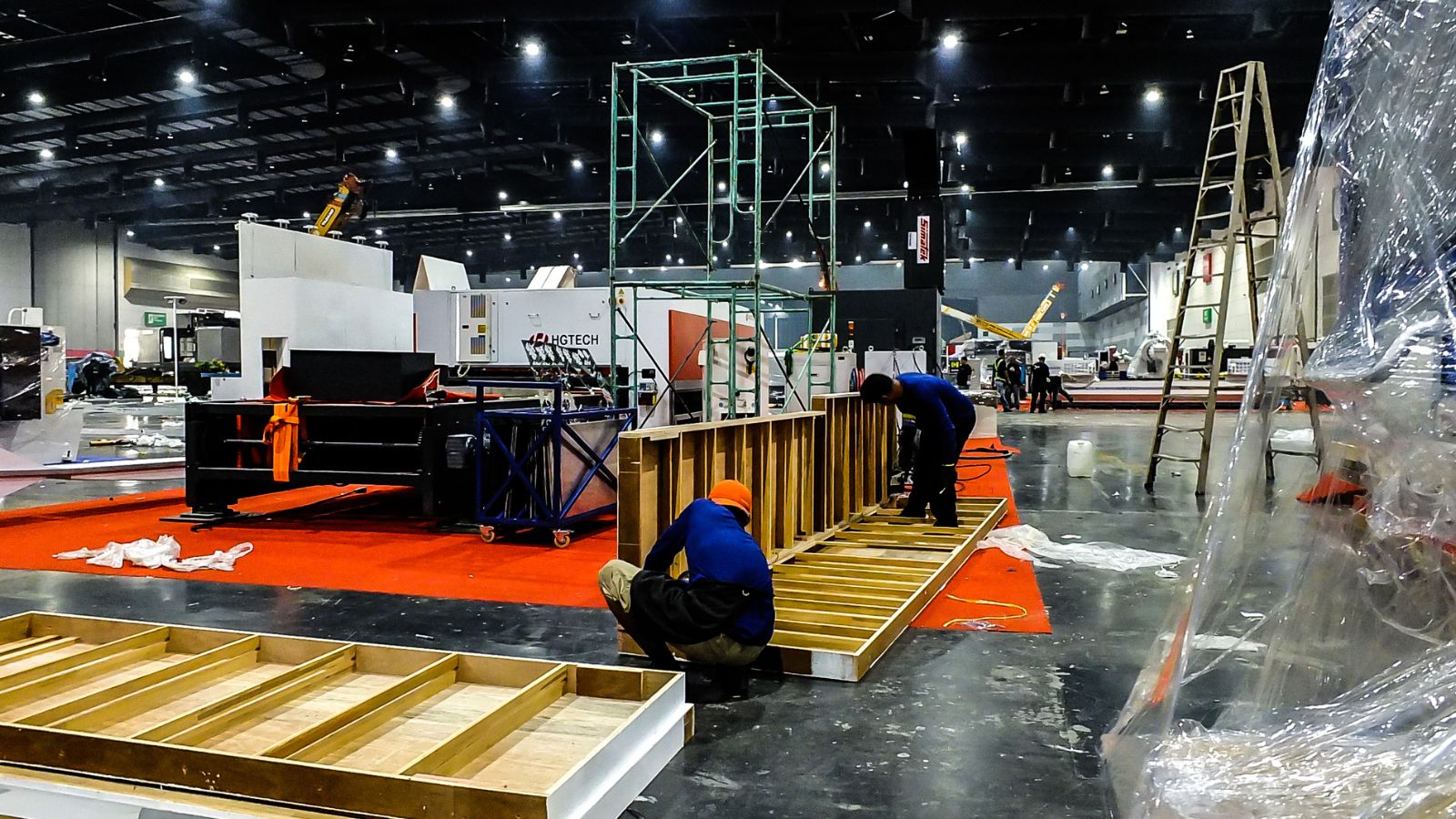Imagine looking out over a bustling cityscape or a quiet small town in Canada—where industries have long been the heartbeat of communities. Yet, as technology evolves and our world shifts, some of these once-vibrant sectors may soon fade away. In this article, we’ll explore 26 industries that could disappear in the next decade. We’ll discuss not only the hard facts and economic pressures but also the human side of these changes: the workers, families, and communities that may be impacted and the hope that comes with adaptation and reinvention.
Telemarketing and Data Entry

Remember when telemarketers would call to sell you a product or service? Those voices on the phone are slowly giving way to automated systems and AI-driven chatbots that can reach out instantly—without ever taking a coffee break. Likewise, jobs in data entry, once filled by diligent workers processing endless streams of numbers, are now being handled by software designed to work faster and more accurately. It’s a shift that not only changes our work landscape but also challenges individuals to learn new skills for a digital future.
Assembly Line Manufacturing

For many Canadians, the assembly line wasn’t just a workplace—it was a community’s pride. However, with the rise of robotics and computer-aided systems, factories are becoming more efficient without the need for as many human hands. Robots work around the clock, performing tasks that once required the steady rhythm of human labor. The consequences extend beyond job losses; they also touch families whose livelihoods have depended on these traditional roles for generations. The challenge is to find a balance between embracing innovation and supporting those in transition.
Legal Administrative Services

Legal support roles, such as paralegals and administrative assistants, have been the unsung heroes behind the scenes in law firms. But now, digital tools that handle document filing, case research, and even initial client communication are stepping into their shoes. This evolution means faster, more efficient legal work—but it also means that many who once thrived in these roles must look for new opportunities or reskill to remain relevant in a changing market.
Meter Reading Services

Picture a utility worker trudging through neighborhoods, manually reading meters one by one. That image is quickly becoming a thing of the past. With the advent of smart meters that automatically relay usage data, the need for on-site meter readers is dwindling. This change brings benefits like improved billing accuracy and more efficient service. Yet, it also raises questions about what happens to the workers who once relied on this steady employment.
Watch and Jewelry Repair

There’s something magical about repairing a cherished watch or piece of jewelry. These skilled artisans have passed down techniques through generations, keeping history alive with every repair. But with the explosion of digital timepieces and smartwatches designed for a modern lifestyle, traditional repair shops are finding fewer customers. While there will always be a niche market for high-end craftsmanship, the industry is shrinking, leaving many artisans wondering how to preserve their legacy in a digital age.
Mining Operations and Agriculture

Canada’s vast natural resources have long fueled its economic engine, but environmental challenges are forcing a rethink. Mining operations, once seen as unyielding, now face the harsh realities of climate change—like water shortages and harsher weather conditions. Similarly, agriculture, a sector that many Canadian families have depended on for generations, faces both opportunities and severe challenges. Warmer temperatures might boost some crops, yet extreme weather events—droughts, heat waves, and storms—threaten overall productivity. It’s a delicate balance between nature’s gifts and its unpredictability.
Fishing Industry and Salmon Farming

The fishing industry in Canada, especially salmon farming, is at a crossroads. There’s been increasing talk about banning open-net pen salmon farming—a move aimed at protecting wild salmon and promoting sustainability. This isn’t just a policy debate; it’s about safeguarding a way of life for coastal communities. Traditional practices that have fed and employed locals for years may need to give way to more sustainable methods, ensuring that future generations can still enjoy the bounty of the sea.
Automotive Manufacturing

The automotive industry is a prime example of how global politics can affect local jobs. Canadian automotive manufacturing, closely linked with cities like Windsor and even Detroit just across the border, faces uncertainty with the possibility of new tariffs and trade restrictions. This isn’t just about cars—it’s about families, small businesses, and communities built around car manufacturing. The story here is one of both innovation and vulnerability, with a future that depends on adapting to a more complex global market.
Real Estate Services

Real estate has long been seen as a cornerstone of Canadian prosperity, with booming markets that can shape a city’s skyline and a nation’s economy. But the market is also a fragile bubble. When investor sentiment shifts, as it inevitably does, the fallout can be widespread—affecting everything from property values to the jobs of those in real estate services. If the bubble bursts, it’s not just a financial crisis; it’s a profound shift that touches the lives of countless families who have made their home investments a part of their dreams and futures.
Traditional Retail and Postal Services

There’s a nostalgic charm to walking through a local store or receiving a handwritten letter in the mail. Yet, as e-commerce platforms and digital communication become the norm, traditional retail and postal services are struggling to stay relevant. Physical stores are giving way to online shopping experiences that offer unmatched convenience, while digital messages are replacing mailed letters. These changes bring undeniable efficiency, but they also mean that cherished community hubs may soon vanish, leaving behind memories of a more personal era.
Print Media and Video Rentals

For many, the rustle of a newspaper and the ritual of a trip to the video rental store evoke a sense of comfort and nostalgia. However, as digital media dominates our screens, the industries that once kept us informed and entertained are under threat. Printed newspapers and magazines have seen a dramatic decline as more people turn to online sources for their news. Similarly, video rental stores—a staple of neighborhoods for decades—are now relics of a bygone era, replaced by the endless libraries of streaming services. This digital transformation is as much about changing habits as it is about economic necessity.
Travel Agencies and Traditional Taxi Services

Travel agencies were once the trusted guides for holiday planning and business trips. They handled everything from flights to hotel bookings with personal attention and care. Today, however, most people book their trips online, comparing prices and reading reviews with just a few clicks. Traditional travel agencies now find themselves competing with the ease and immediacy of digital platforms. At the same time, taxi services—once a reliable means of urban transport—are being disrupted by ride-sharing apps and, eventually, self-driving cars. The comfort of human interaction in these services is being replaced by convenience, a change that is both exciting and, for some, a little bittersweet.
Textile Manufacturing and Photo Processing

Canada’s textile industry, a once-thriving sector in many communities, now faces fierce global competition and rapid automation. Factories that once buzzed with the sound of sewing machines are quieting down as production moves to more cost-effective regions overseas. Likewise, the art of photo processing—where memories were once carefully developed from physical photographs—is fading. Today, digital photography has transformed how we capture, store, and share our lives, leaving behind the need for traditional photo labs. These shifts highlight how technology can enrich our lives and render certain traditional crafts nearly obsolete.
Coal Mining and Logging Industries

No discussion about Canada’s future would be complete without acknowledging our deep connection to the land. Coal mining and logging industries have long been part of Canada’s identity, yet they now face a turning point. Coal, a once-reliable source of energy, is losing favor as the world shifts toward greener, renewable sources. Logging and paper mills, too, are being impacted—not only by environmental concerns but also by the digital revolution, which has dramatically reduced our reliance on paper. The challenge lies in balancing economic needs with environmental stewardship, ensuring that the legacy of these industries evolves rather than disappears entirely.
Bank Tellers and Manufactured Home Dealers

Think back to the last time you visited a bank branch, interacting with friendly bank tellers who helped you with your transactions. Now, much of that experience is shifting online. With the growth of digital banking and the widespread availability of ATMs, the role of the traditional bank teller is shrinking. Similarly, the market for manufactured homes—once a practical and affordable housing option for many—faces changes as consumer preferences evolve and economic pressures push buyers toward different solutions. These transitions highlight the broader trend of digital transformation in our daily lives, even in areas once defined by personal interaction.
Wired Telecommunications Carriers

Remember when a landline was the center of your home’s communication? Today, our lives are dominated by wireless connectivity. Traditional wired telecommunications, which once provided the backbone for connecting families and businesses, are gradually being replaced by more flexible mobile networks. This evolution is a natural consequence of our fast-paced, always-connected world. Yet it also symbolizes the fading era when communication was tethered to a fixed location.
Video Post-Production Services

For creative professionals, video post-production was a craft honed over years of training and expensive equipment. The magic of editing, color correction, and sound design brought films and videos to life. However, in today’s world, user-friendly video editing software empowers anyone with a computer to create high-quality content. This democratization of technology means that traditional post-production services may shrink as individuals and small teams take on roles once reserved for specialists. While this opens up exciting creative possibilities, it also challenges long-established studios to find new ways to add value in an era where everyone is a potential filmmaker.
Cable and Satellite Television Providers

There was a time when gathering around the TV for your favorite show meant subscribing to a cable or satellite package with a set lineup of channels. Today, however, streaming services have redefined the way we watch television. Many households now favor on-demand content, personalized recommendations, and the flexibility of binge-watching at home. As more Canadians cut the cord in favor of platforms like Netflix, Crave, and Disney+, traditional cable and satellite providers are facing a steep decline in subscribers.
This shift isn’t just about technology—it’s about changing lifestyles and evolving expectations. The familiar monthly bill for cable services may soon be replaced by subscription bundles that better cater to individual viewing habits. While some long-standing service providers are adapting by launching their own streaming platforms, many smaller players may struggle to survive in an increasingly digital environment.
Traditional Bookstores
 Many people love cozy bookstores for their charm and nostalgia. However, they face challenges from e-books and online shopping. Buying books online is convenient, with instant downloads and personalized suggestions. To compete, independent bookstores are hosting events and offering cafes, but financial pressures from giants like Amazon threaten their survival. While local bookstores provide a personal touch, the digital age is reshaping how we access stories and ideas.
Many people love cozy bookstores for their charm and nostalgia. However, they face challenges from e-books and online shopping. Buying books online is convenient, with instant downloads and personalized suggestions. To compete, independent bookstores are hosting events and offering cafes, but financial pressures from giants like Amazon threaten their survival. While local bookstores provide a personal touch, the digital age is reshaping how we access stories and ideas.
Physical Music Stores

Remember the thrill of wandering through a music store, where rows of CDs, vinyl records, and posters invited you to explore new sounds? As streaming services like Spotify and Apple Music dominate our listening habits, physical music stores are experiencing a rapid decline in foot traffic.
The shift from owning music to accessing endless digital playlists has transformed an industry once defined by tangible experiences. While niche record stores and vinyl collectors continue to find a loyal audience, the average music shopper no longer needs to visit a store to discover or purchase music. This change underscores a broader cultural evolution: our connection to art is becoming more virtual, and with it, the beloved spaces where we once bonded over shared musical discoveries are becoming rarer.
Oil & Gas Refining and Extraction

Canada’s energy sector has long been a cornerstone of its economy. However, the global push toward renewable energy and stricter environmental standards is challenging the traditional oil and gas industry. Refining and extraction processes that once powered economies now face scrutiny as governments and consumers lean toward cleaner energy alternatives.
For communities built around oil sands and refineries, the transition can feel like the ground shifting beneath their feet. The jobs, skills, and local economies that once thrived on fossil fuels are now confronted with the reality of a world determined to reduce carbon footprints. While some companies are investing in cleaner technologies and diversifying their energy portfolios, the overall landscape is likely to see a significant contraction in conventional oil and gas operations. This shift is not just an environmental imperative—it’s a call for workers and communities to reimagine their futures and embrace the renewable energy revolution.
Movie Rental Kiosks and Cinemas

The charm of renting a movie from a local kiosk or heading out to a neighborhood cinema has long been part of Canada’s cultural fabric. Yet, the digital revolution in entertainment has dramatically reshaped how we enjoy films. Streaming services now offer instant access to vast libraries of content without ever leaving your living room.
While blockbuster cinemas still draw crowds for big releases and the immersive experience of the big screen, smaller, less competitive cinemas and movie rental kiosks face a steep decline. The once-thriving industry that brought communities together to share stories on film now contends with the convenience—and sometimes the isolation—of home viewing. For many, the loss of these traditional venues represents more than just a change in entertainment; it symbolizes a shift in how we interact with culture and community.
Gaming Arcades and Physical Entertainment Venues

In decades past, gaming arcades were vibrant social hubs where friends gathered to challenge high scores on pinball machines and arcade cabinets. Today, however, the rise of home gaming consoles, online multiplayer platforms, and mobile gaming has diminished the appeal of these physical spaces.
While a few retro arcades still draw enthusiasts and serve as nostalgic retreats, the broader market for traditional gaming venues is shrinking. The social element of arcades has moved online, where digital communities thrive without the need for a physical location. As virtual experiences continue to evolve, the fate of local gaming arcades becomes a poignant reminder of how technological advancements can both connect and disconnect us from familiar, cherished environments.
Traditional Office Supply Stores

Once bustling with activity, traditional office supply stores served as the go-to destination for businesses and individuals alike. These stores provided everything from paper and pens to printers and filing cabinets. However, the digital transformation of the workplace is rapidly diminishing its relevance.
As offices embrace paperless environments and remote work becomes more common, the demand for physical office supplies has decreased significantly. Moreover, online retailers now offer these essentials at competitive prices and with greater convenience. For local office supply shops that have long been community fixtures, adapting to this digital shift is essential. Without significant changes, these stores risk becoming relics of an era when face-to-face shopping was the norm.
Conventional Travel Print Agencies

Before the internet revolutionized travel planning, conventional travel print agencies provided detailed brochures, travel booklets, and personalized advice that helped shape memorable vacations. Today, however, most Canadians turn to digital platforms for travel inspiration and bookings.
Printed travel guides and brochures are becoming less common as websites, apps, and online reviews offer real-time information and tailored recommendations. For agencies that once thrived on the tactile experience of flipping through glossy pages of destinations, the digital shift challenges their traditional business model. While some niche agencies still cater to travelers who appreciate printed materials and personal consultations, the overwhelming trend is toward digitalization—reshaping how we dream about and plan our adventures.
The Future of Local Community Services

Beyond the specific industries mentioned, many local services that once defined community life are also facing transformation. Think of small neighborhood businesses that offer personalized services— a local repair shop, a community café, or an artisanal workshop. As digital marketplaces and large-chain stores gain ground, these local gems are finding it harder to compete.
This isn’t merely an economic shift; it’s a transformation of our social landscape. Local services often serve as gathering places where community bonds are forged and maintained. Their decline could lead to a loss of local identity and connection. However, this evolution also presents an opportunity: Communities can rally together to reinvent these spaces, blending traditional charm with modern technology to create hybrid models that serve local needs and the digital age.
Conclusion

As we look ahead to the next decade, it’s important to recognize that the disappearance of some industries doesn’t signal the end of work—it signals transformation. The future of work in Canada will be defined by those who can balance the wisdom of the past with the promise of the future.
25 Countries Predicted to Become Economic Superpowers in the Next 20 Years

The strength of an economy plays a crucial role in various international policies about trade and relations. Certain factors determine the strength of an economy, including population growth, availability of resources, and development and advancement. Here are 25 countries predicted to become economic superpowers in the next 20 years
25 Countries Predicted to Become Economic Superpowers in the Next 20 Years
